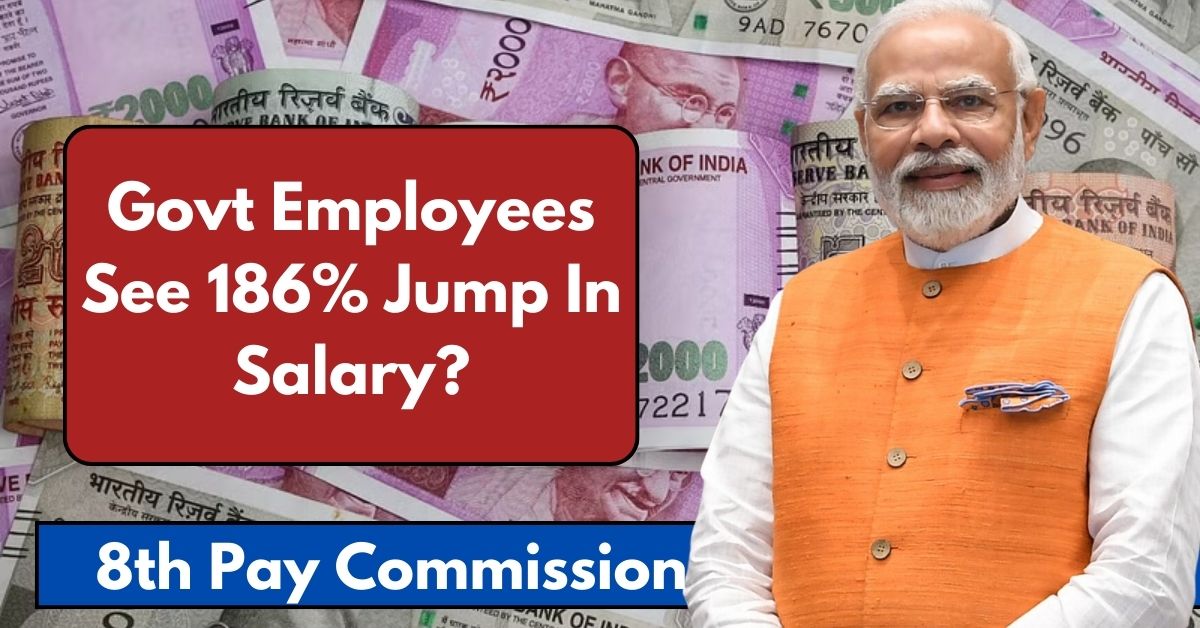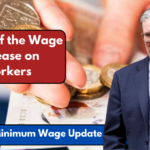The Union Cabinet has approved the implementation of the 8th Pay Commission, a significant move that will impact nearly 50 lakh central government employees and 65 lakh pensioners. The new commission is set to revise salaries and allowances, including Dearness Allowance (DA), though the exact date for its establishment has not yet been announced.
Key Highlights:
- Approval Confirmed: The Prime Minister has greenlit the 8th Central Pay Commission. Minister Vaishnaw confirmed that the chairman and two members of the commission would be appointed shortly.
- Historical Context: Since 1947, India has seen seven Pay Commissions, with the most recent one established in 2014 and implemented on January 1, 2016. The 7th Pay Commission resulted in an expenditure surge of Rs 1 lakh crore for the 2016-17 fiscal year.
Here’s the information you requested in tabular form:
| Topic | Details |
|---|---|
| Approval Date | Thursday (16 January, 2025) |
| Pay Commission | 8th Pay Commission |
| Beneficiaries | Nearly 50 lakh central government employees and 65 lakh pensioners |
| Primary Changes | Revised salaries for employees and revised Dearness Allowance (DA) for both employees and pensioners |
| Commission Formation | The chairman and two members will be appointed soon |
| Last Pay Commission | 7th Pay Commission (constituted in 2014, implemented on January 1, 2016) |
| Previous Pay Commission Impact | 7th Pay Commission resulted in an expenditure increase of Rs 1 lakh crore in fiscal 2016-17 |
| Purpose of Pay Commission | To revise salary and pension structure, including recommending revisions to DA and allowances for government employees and pensioners |
| Current Pay Commission Status | Date for the setup has not been announced yet |
| Implementation Date | Expected to be in 2025 |
| Timeframe of Implementation | The process starts now to ensure the recommendations are received before the 7th Pay Commission’s term concludes in December 2025 |
| Consultations | Consultations will take place with central and state governments and other stakeholders before recommending salary structures and allowances |
| Economic Impact | Increased consumption, economic growth, and improved quality of life for government employees |
| General Implementation Frequency | Every 10 years, a new Pay Commission is usually implemented to revise employee remuneration |
| Fitment Factor (7th Pay Commission) | The fitment factor for salary revision was set at 2.57, instead of the requested 3.68 by employee unions |
| Salary Increases (7th Pay Commission) | – Minimum basic pay increased from Rs 7,000 to Rs 18,000 per month (2.57-fold increase) – Minimum pension increased from Rs 3,500 to Rs 9,000 |
| Maximum Salary/Pension (7th Pay) | – Maximum salary revised to Rs 2,50,000 – Maximum pension set at Rs 1,25,000 |
| 8th Pay Commission Key Consideration | Revised formulas for Dearness Allowance and Dearness Relief |
| Relation to 2025 Budget | The 8th Pay Commission’s approval came just days before the 2025 Budget announcement |
What is the 8th Pay Commission?
A Pay Commission is a government-appointed body responsible for reviewing and recommending salary structures and allowances for central government employees and pensioners. The 8th Pay Commission will propose revisions to salaries and pensions, leading to an increase in remuneration and benefits.
Beneficiaries and Importance:
According to PTI, over 49 lakh central government employees and 65 lakh pensioners stand to benefit from these revisions. The timely initiation of the 8th Pay Commission ensures that recommendations will be reviewed and implemented before the 7th Pay Commission’s term concludes in December 2025. This proactive approach aims to maintain continuity in salary revisions.
Process and Impact:
The commission will engage in consultations with central and state governments and other stakeholders to formulate its recommendations. Historically, these recommendations are adopted by state-owned organizations, leading to widespread economic implications.
Economic Implications:
The implementation of a new pay commission typically spurs increased consumption and economic growth. Enhanced salary structures and allowances contribute to an improved quality of life for government employees. Additionally, the commission will recommend formulas for revising dearness allowance and dearness relief, addressing inflationary pressures.
Key Changes from the 7th Pay Commission:
The 7th Pay Commission, established in 2014 and effective from 2016, brought significant changes:
- Expenditure Increase: Rs 1 lakh crore for fiscal 2016-17.
- Fitment Factor: The government set the fitment factor at 2.57, against the employee unions’ demand of 3.68. This factor determines salary and pension calculations.
- Salary Revisions: The minimum basic pay increased from Rs 7,000 to Rs 18,000 per month. Minimum pensions rose from Rs 3,500 to Rs 9,000, with maximum salaries and pensions capped at Rs 2,50,000 and Rs 1,25,000 respectively.
Conclusion:
The Union Cabinet’s approval of the 8th Pay Commission marks a pivotal step towards enhancing the financial well-being of central government employees and pensioners. This decision, strategically timed before the 2025 Budget announcement, underscores the government’s commitment to maintaining fair and competitive remuneration for its workforce.
For further updates, stakeholders are encouraged to stay informed through official government announcements and channels.
Note: Information is curated from the information based on the report by ANI & Financial Express.
Manish Kumar is a seasoned journalist and the Senior Editor at NewIndiaNetwork.com, with over a decade of experience in uncovering stories that matter. A leader both in the newsroom and beyond, he thrives on guiding his team to deliver impactful, thought-provoking content. When he’s not shaping headlines, you can find him sharing his insights on Twitter @humanish95 or connecting via email at manishdhanda60@gmail.com.









